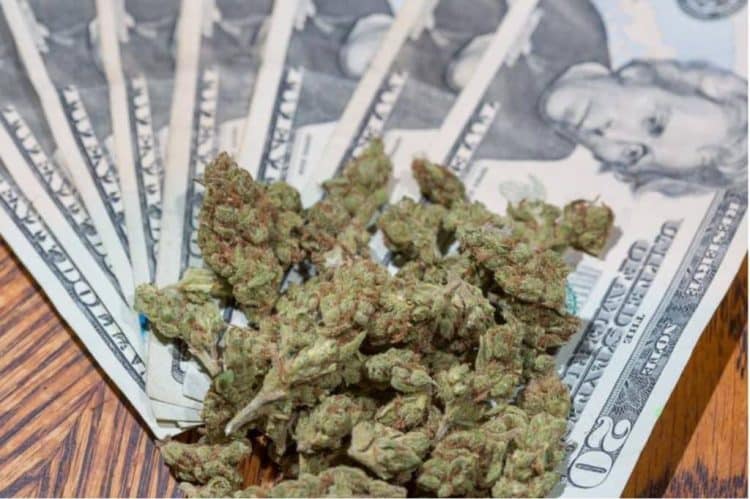Chairman Nadler introduces the Cannabis Opportunity, Reinvestment, and Expungement Act
Washington, DC: Today, House Judiciary Committee Chairman Jerry Nadler (NY) introduced The Cannabis Opportunity, Reinvestment, and Expungement (MORE) Act. The Senate companion bill is carried by Senator Kamala Harris (CA).
NORML Political Director Justin Strekal said,
“Never in American history has the Chairman of the Judiciary introduced a bill to end federal cannabis criminalization. At a time when the state you live in can determine whether cannabis can ruin your life or make you a millionaire, now more than ever we must end the national prohibition of cannabis. The Cannabis Opportunity Reinvestment and Expungement (MORE) Act embodies the need to legalize cannabis and restore the rights of those who have suffered under the cruel and failed policy of criminalization.”
NORML Executive Director Erik Altieri said,
“After nearly a century of prohibition, it is clear this policy has been an absolute failure and a national disgrace. All we have to show for the war we have waged on cannabis is the egregious harms it has wrought upon tens-of-millions of our fellow citizens. By passing the MORE Act, Congress can begin to remedy the pain caused by the criminalization of cannabis. This bill provides a real federal solution by fully descheduling of cannabis from the Controlled Substances Act and providing relief to those suffering under the collateral consequences of having a cannabis charge on their record by facilitating the process of expungements. The American public is overwhelmingly ready to legalize cannabis, their elected officials in Washington need to finally start representing the will of the people and advance this sensible legislation.”
About the bill:
The MORE Act is the most comprehensive cannabis reform bill ever introduced in the US Congress. Crafted by House Judiciary Committee Chairman Jerry Nadler (NY), the bill is backed by a broad coalition of civil rights, criminal justice, drug policy, and immigration groups.
If enacted, the bill would remove cannabis from the Controlled Substances Act, thus decriminalizing the substance at the federal level and enabling states to set their own policies. Descheduling will also allow the existing state-legal cannabis industry to no longer be barred from accessing financial services or standard tax treatment as every other legal business. Similarly, veterans will have better access to medical cannabis with VA doctors no longer risking federal prosecution for filling out state-legal medical recommendations.
Given the restrictions the cannabis industry has had to abide by under section 280E of the IRS code, existing enterprises would have a significantly lower overall tax burden than under the current policy of prohibition.
The bill would tax cannabis products at a modest 5% to establish a Trust Fund to assist state and local governments in expunging criminal records and setting up regulatory structures for cannabis’s lawful production and distribution.
The Trust Fund would have three functions:
- A fund administrated by a newly created Office of Cannabis Justice to issue grants to communities negatively impacted by the war on drugs for the development of expungement processes, employment programs, reentry guidance, youth resources and more. The Office of Cannabis would be one of the Justice Programs in the Department of Justice. This provision is modeled on the Cannabis Justice Act, by Senator Cory Booker (NJ) and Representative Barbara Lee (CA).
- A fund administered by the Small Business Administration to encourage socially and economically disadvantaged people to enter the cannabis industry, similar to legislation introduced by Chairwoman Nydia Velázquez (NY).
- A fund administered by the Small Business Administration to create equitable licensing programs in states and local governments that benefit communities most impacted by the prohibition.
Currently, individuals with a cannabis conviction are saddled with collateral consequences, including a prohibition from obtaining federal benefits, student loans, or security clearances for government jobs due to cannabis’s criminalized status. To correct the historical injustices relating to prohibition, the MORE Act offers the opportunity to petition for resentencing and expungement. This will eliminate this discrimination and create new opportunities for individuals desperate to advance their careers, education, and quality of life. Immigrants will also benefit from the MORE Act because they will no longer be subject to deportation or citizenship denial solely based on a cannabis infraction.
Finally, the text contains two clarifying amendments:
- If one section of the bill is declared unconstitutional, the remainder of the bill remains in effect.
- The federal government can continue having a role in cannabis in areas such as public health, transportation, employment, etc.
General information
According to the most recent FBI Uniform Crime Report, police made 659,700 arrests for cannabis-related violations in 2017. That total is more than 21 percent higher than the total number of persons arrests for the commission of violent crimes (518,617) in 2017. Of those arrested for cannabis crimes, just under 91 percent (599,000) were arrested for cannabis possession offenses, a slight increase over the previous year’s annual totals. Total cannabis arrests in 2017 increased for the second straight year, after having fallen for nearly a decade.
Thirty-three states, Washington, D.C. and the U.S. territories of Guam and Puerto Rico have enacted legislation specific to the physician-authorized use of cannabis. Moreover, an estimated 86 million Americans now reside in the eleven states where anyone over the age of 21 may possess cannabis legally. An additional thirteen states have passed laws specific to the possession of cannabidiol (CBD) oil for therapeutic purposes.
Sixty-eight percent of registered voters “support the legalization of cannabis,” according to 2018 national polling data compiled by the Center for American Progress. The percentage is the highest level of support for legalization ever reported in a nationwide, scientific poll.
Majorities of Democrats (77 percent), Independents (62 percent), and Republicans (57 percent) back legalization. The results of a 2018 nationwide Gallup poll similarly found majority support among all three groups.
To date, these statewide regulatory programs are operating largely as voters and politicians intended. The enactment of these policies have not negatively impacted workplace safety, crime rates, traffic safety, or youth use patterns. They have stimulated economic development and created hundreds of millions of dollars in new tax revenue.
Specifically, a 2019 report estimates that over 211,000 Americans are now working full-time in the cannabis industry. Tax revenues from states like Colorado, Oregon, and Washington now exceed initial projections. Further, numerous studies have identified an association between cannabis access and lower rates of opioid use, abuse, hospitalizations, and mortality.
###
NORML’s mission is to move public opinion sufficiently to legalize the responsible use of cannabis by adults, and to serve as an advocate for consumers to assure they have access to high-quality cannabis that is safe, convenient, and affordable.
Find out more at www.norml.org and read our factsheets on the most common misconceptions and myths regarding reform efforts around the country at www.norml.org/marijuana/fact-sheets
Contact:
Justin Strekal
NORML Political Director
[email protected]













